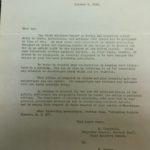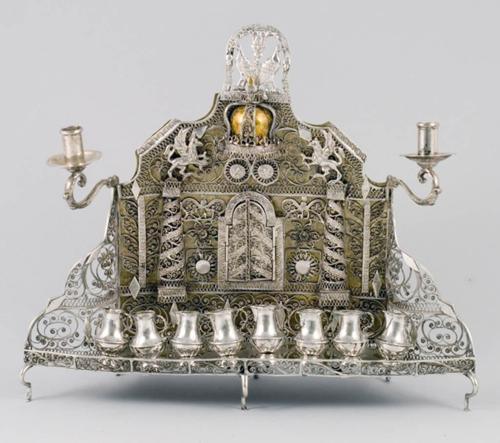The American Jewish Historical Society meets the U.S. War Department’s Military Intelligence Branch
by Michael D. Montalbano, Institutional / Processing Archivist, Center for Jewish History
Although propaganda existed in a variety of forms prior to the 20th century, its scale and use of the technology during World War I was unprecedented. To counteract the intended effects of propaganda, governments established various defenses, the main one being the censorship of material.
Included in the records of the American Jewish Historical Society is this letter dated October 4, 1918 from the Military Intelligence Branch of the War Department of the United States. At this point in the timeline of the war, the Allied forces have already broken through the Hindenberg Line—the main German defense—as part of the Hundred Days Offensive. The letter is an example of how governments requested that publishers submit material for review and implied that it was the publishers’ patriotic duty to cooperate. In thinking about this document, one should be mindful of the condition of the war and what was occurring in the United States.
The letter, most likely a form letter, is transcribed here:
Dear Sir:
The Chief Military Censor is having his attention called daily to books, periodicals, and articles that should not be published in time of war. In most cases such literature is openly pro-German, designed to lower the fighting morale of our troops or to present the war in an unfair light to the citizens of the United States. Often such literature reveals military secrets. At other times, however, it proves to be propaganda so cleverly disguised as to have escaped the notice of even the most patriotic publishers.
We write to request your co-operation in keeping such literature at a minimum. You can do this by referring to us for censorship any articles or manuscripts about which you are doubtful.
This office is prepared to review and pass promptly upon any manuscripts you may submit. All manuscripts are reviewed and returned with the least possible delay.
In helping to present the war and its problems fairly to the public, publishers are peculiarly fitted to render the nation a patriotic service. The Department of Military Censorship asks your aid in suppressing pro-German propaganda and in withholding military secrets. And in making this request it feels assured of your hearty co-operation.
When forwarding manuscripts, address them, “Attention Captain Spencer, M. I. 10”
Very truly yours,
M. Churchill,
Brigadier General, General Staff,
Chief Military Censor.
By:
R. Hughes,
Major, U.S.A.
Source: Letter from the War Department, 1918 October 4; American Jewish Historical Society Records; I-1; American Jewish Historical Society, Boston, MA and New York, NY.
To conduct your own search of the collections, click here.


